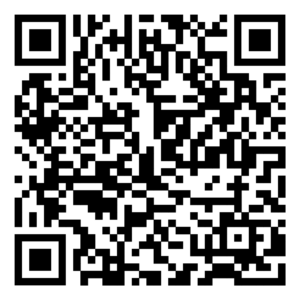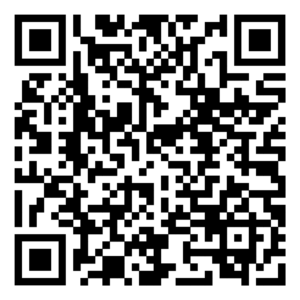Mes informations
Ma présentation
Academic Integrity in the Age of Online Class Help Introduction Academic integrity is a fundamental principle in education that ensures honesty, fairness, and responsibility in learning. However, the rise of nurs fpx 4005 assessment 2 has introduced new challenges to maintaining academic integrity. With the availability of online class help services, students now have access to a variety of resources that can be used both ethically and unethically. This paper explores the importance of academic integrity, the challenges posed by online learning, the role of online class help services, and strategies to uphold academic honesty in a digital environment. The Importance of Academic Integrity Academic integrity is essential for a fair and effective educational system. It ensures that students earn their grades based on their own efforts and that educational institutions maintain their credibility. Integrity in academia fosters critical thinking, problem-solving skills, and intellectual growth. Additionally, students who adhere to academic integrity develop ethical standards that benefit them in their professional and personal lives. Violations of academic integrity, such as plagiarism, cheating, and unauthorized collaboration, undermine the value of education. They create unfair advantages and devalue the achievements of honest students. In the professional world, individuals who lack academic integrity may struggle with ethical decision-making, leading to potential consequences in their careers. Challenges to Academic Integrity in Online Education While online education offers flexibility and accessibility, it also presents unique challenges to maintaining academic integrity. Some of these challenges include: Lack of Supervision: Traditional classrooms allow instructors to monitor students during exams and assignments. In an online setting, students have more freedom, which increases opportunities for academic dishonesty. Ease of Access to Online Help Services: Many websites offer homework assistance, essay writing, and even test-taking services. While some of these resources are legitimate, others encourage unethical behavior. Difficulty in Verifying Student Identity: Online education makes it harder for instructors to confirm whether the student submitting work is the same person enrolled in the course. This has led to concerns about identity fraud and contract cheating. Increased Use of AI Tools: Artificial intelligence (AI) tools, such as ChatGPT and other automated writing assistants, can generate responses to academic questions. While these tools can be used ethically, they can also be misused to produce work without genuine effort. Collaboration Outside Ethical Boundaries: Online education often includes discussion boards and group projects. However, students may engage in unauthorized collaboration, sharing answers on assignments or assessments that are meant to be completed individually. The Role of Online Class Help Services nurs fpx 4055 assessment 4 range from legitimate tutoring platforms to websites that offer to complete coursework on behalf of students. These services can be categorized into three types: Ethical Online Help Services: Platforms like Khan Academy, Coursera, and legitimate tutoring websites provide instructional support without promoting academic dishonesty. They help students understand concepts and improve their learning experience. Gray-Area Services: Some websites offer detailed solutions to textbook problems or past exam questions. While these can be used as study aids, they can also be misused if students copy answers directly without understanding the material. Unethical Services: Certain services explicitly offer to write essays, complete assignments, or even take online exams for students. These services promote contract cheating and violate academic integrity policies. Strategies to Uphold Academic Integrity in Online Education To maintain academic honesty in the digital era, students, educators, and institutions must adopt proactive strategies. 1. Educating Students on Academic Integrity Many students may not fully understand what constitutes academic dishonesty. Institutions should provide clear guidelines on ethical learning practices and the consequences of violations. Workshops, online modules, and honor codes can help reinforce the importance of academic integrity. 2. Utilizing Plagiarism Detection Tools Software like Turnitin and Copyscape can help identify instances of plagiarism. Instructors can use these tools to ensure that students submit original work and adhere to academic integrity policies. 3. Implementing Proctored Exams and AI Monitoring Online proctoring software, such as ProctorU and Respondus Monitor, helps verify student identity and monitor behavior during assessments. AI-powered monitoring tools can detect unusual activity, such as multiple screen usage or external assistance. 4. Encouraging Ethical Use of Online Resources Rather than discouraging the use of online help services altogether, institutions should guide students on how to use these resources ethically. For example, students can be encouraged to use tutoring platforms for concept clarification rather than direct answers. 5. Designing Assignments That Promote Critical Thinking Traditional multiple-choice tests and direct-answer questions can be easily copied or found online. Instead, educators should design assignments that require critical thinking, analysis, and personalized responses, making it harder for students to cheat. 6. Fostering a Culture of Integrity Creating a culture that values academic honesty can deter students from engaging in dishonest practices. Encouraging open discussions about ethical dilemmas, providing mentorship, and recognizing honest efforts can reinforce positive behavior. 7. Using Contract Cheating Detection Measures Institutions can employ AI-based detection methods to identify contract cheating. These tools analyze writing patterns, compare past assignments, and flag inconsistencies in writing style. The Ethical Dilemma of AI and Automated Tools in Academics Artificial intelligence and automated writing tools pose new ethical dilemmas in online education. While AI can be an excellent tool for brainstorming, research assistance, and grammar improvement, students may misuse it to generate complete assignments. Educators should: Teach students how to use AI tools responsibly. Set clear guidelines on AI usage in assignments. Incorporate AI-detection software to identify potential misuse. Institutional Policies and Enforcement Educational institutions play a crucial role in upholding academic integrity by: Establishing strict academic honesty policies. Conducting regular audits of online coursework. Implementing honor pledges for assessments. Providing academic support services to help struggling students without resorting to unethical practices. Conclusion Academic integrity remains a cornerstone of education, even in the digital age. While online education presents unique challenges, it also provides opportunities for innovation and ethical learning. By promoting transparency, educating students on ethical practices, and implementing effective monitoring systems, institutions can preserve the credibility of academic achievements. Students must recognize the value of honest learning and strive to uphold integrity in their academic journeys. In a world where knowledge and ethical values shape future professionals, maintaining academic integrity is not just a responsibility—it is a necessity.






























































